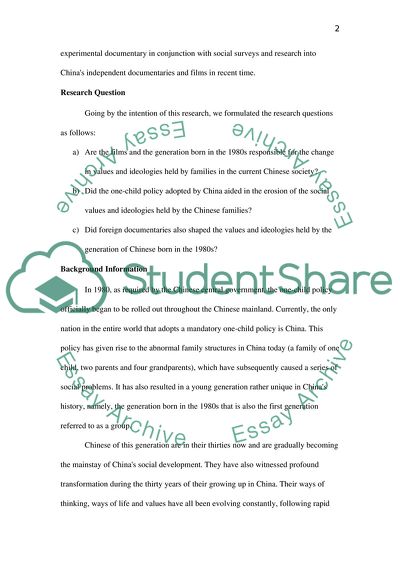Cite this document
(The Impact of One-child Policy on Generation Born in the 1980s in Research Proposal, n.d.)
The Impact of One-child Policy on Generation Born in the 1980s in Research Proposal. https://studentshare.org/social-science/1880087-phd-personal-proposal
The Impact of One-child Policy on Generation Born in the 1980s in Research Proposal. https://studentshare.org/social-science/1880087-phd-personal-proposal
(The Impact of One-Child Policy on Generation Born in the 1980s in Research Proposal)
The Impact of One-Child Policy on Generation Born in the 1980s in Research Proposal. https://studentshare.org/social-science/1880087-phd-personal-proposal.
The Impact of One-Child Policy on Generation Born in the 1980s in Research Proposal. https://studentshare.org/social-science/1880087-phd-personal-proposal.
“The Impact of One-Child Policy on Generation Born in the 1980s in Research Proposal”. https://studentshare.org/social-science/1880087-phd-personal-proposal.


